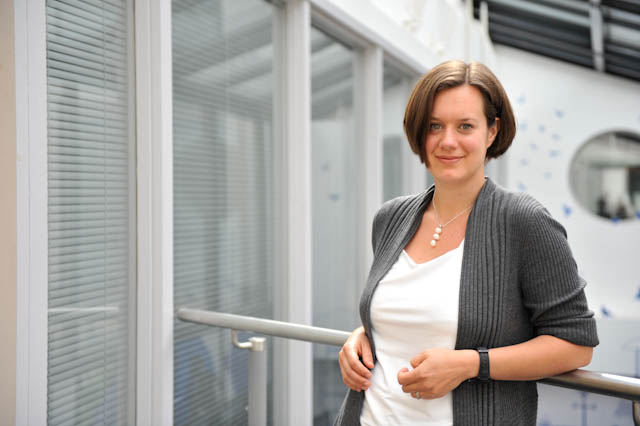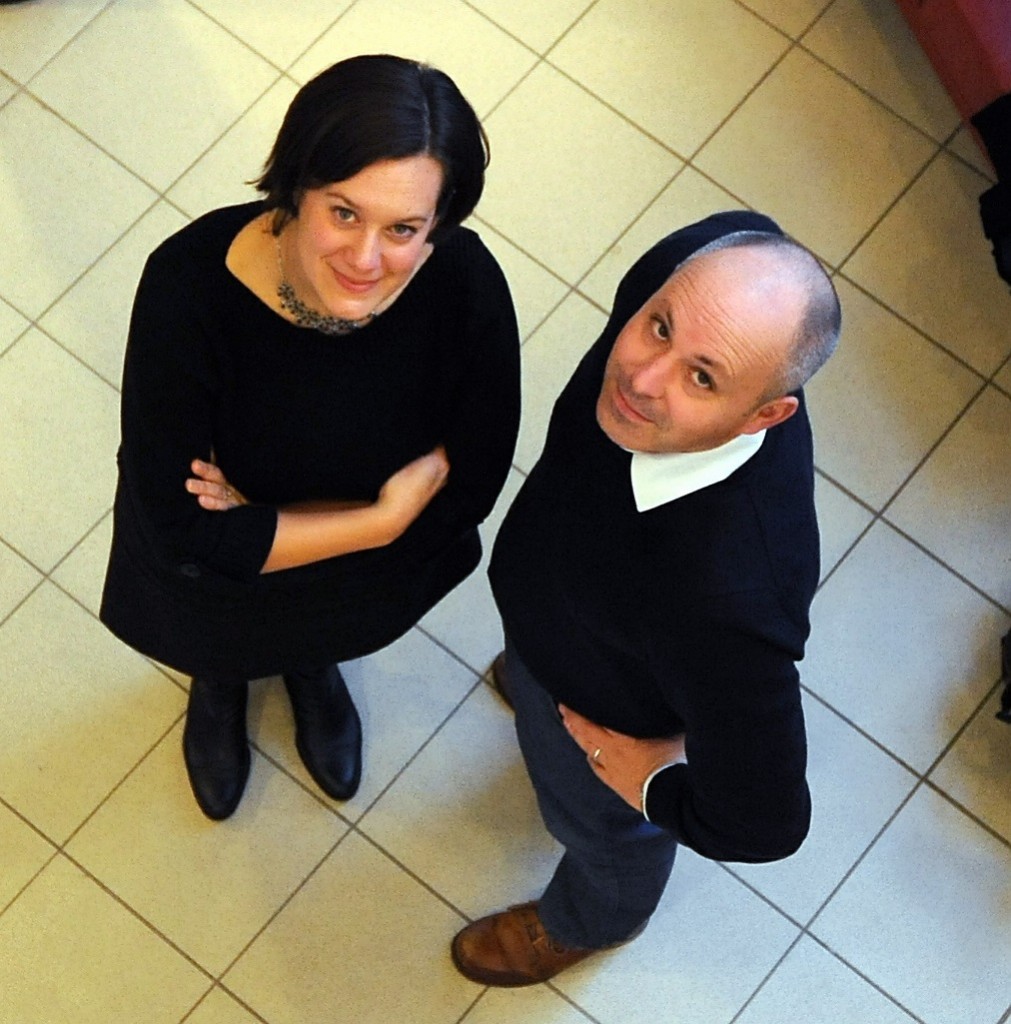In the spotlight:
Name: Deniz Ucbasaran
Location: Coventry
Occupation: Professor of Entrepreneurship, Warwick Business School, University of Warwick
You are an influential individual within the enterprise education space. What does ‘enterprise education’ mean to you, and why do you think it’s important?
I view entrepreneurial thinking as an important life skill that can be applied in many settings. Therefore, for me, enterprise education is about developing an entrepreneurial mindset and honing the skills needed to enact such an attitude. An entrepreneurial mindset allows individuals to identify opportunities to create new value (economic, social and/or cultural) and ways in which they can exploit those opportunities even in the face of significant uncertainty. Such opportunities might relate to start-ups, but they can also relate to existing organisations; large or small, new or old, in the public or private sector…
How did you first become involved with enterprise education?
It was a natural extension of my research, really. As an academic, one tries to be in the privileged position of ensuring alignment between what they research (and therefore become knowledgeable about) and what they are asked to teach. Interestingly, I only really started to teach entrepreneurship when I came to Warwick seven years ago, and was asked to become involved in delivering a programme to executive MBA students.
Your research explores many areas of entrepreneurial activity – including failure. In a recent article, you commented that ‘anything that helps people talk about failure and helps normalise failure is helpful’. How can enterprise education help prepare entrepreneurs to cope with business failure – and should enterprise educators be doing more to promote discussion of this (arguably taboo) topic?
I believe entrepreneurship and failure go hand in hand due to the uncertainties inherent in many entrepreneurial opportunities. You can plan to the limits of your knowledge, but you can’t predict what is going to happen – especially in fast-moving industries or when creating new markets. Entrepreneurial activity might therefore be usefully viewed as a series of experiments, some of which may not yield the results you might hope for. Setbacks, surprises and failures are a natural part of entrepreneurship. I feel that it would be irresponsible of us as educators not to explain this. I also think we have a responsibility to paint a realistic picture of life as an entrepreneur – including its many rewards and challenges. I try to achieve this by bringing entrepreneur guests who can present such a picture into my classroom. There are also case studies of entrepreneurs who are going through the process of terminating a venture. Getting students to put themselves into the shoes of such individuals can help them think through the issues and prepare them.
I think as enterprise educators we should make it clear that failure is possible (even likely), but that there are ways of minimising the costs of failure (“fail fast, fail cheap” wherever possible) – and there are steps that individuals can take to help the recovery process.
Can enterprise be included at all stages of education, and within every subject? If yes, how? If no, why not?
I think that it can be included from a very early age – indeed, there is evidence that it can. I’ve seen primary schools that encourage creativity and problem-solving as well as financing and resourcing – all key elements of enterprise. A stand at a school fair is a classic example.
Involving students of all ages in business can also be very useful. A positive example is the Stepping Stones Cookie Bar – a social enterprise that was designed to help children with disabilities gain business and practical skills (as well as confidence) by making and selling cookies and drinks. Positive examples of how entrepreneurial skills can be used to help solve societal challenges should be nurtured from a young age, so that this kind of thinking becomes normal and natural. We don’t want our kids to suffer from apathy; instead, they should be proactive, using the skills they acquire during their education (at all stages) for social good.
How have your experiences of working with private business and public policy circles influenced your teaching?
The work I have done with entrepreneurial businesses – and those supporting them – has been very influential to my teaching. I have a much deeper understanding of the challenges that entrepreneurs face, as well as how to deal with these. I have built this knowledge into my curriculum. I believe that my links have allowed me to develop a complementary blend of the academic and practical in my teaching. I’ve also found that business circles are very open to contributing to the education we are seeking to provide. I’ve been overwhelmed by the generosity and openness of many entrepreneurs who have been willing to speak to my students and support them in their entrepreneurial endeavours.
For students who don’t want to be entrepreneurs, what other benefits does enterprise education provide?
As mentioned previously, I think an entrepreneurial mindset and associated behaviours can be applied in many settings. I think media portrayals of successful entrepreneurs don’t always help students. Yes, they can be inspiring – but they tend to be all about start-ups, and this can be daunting, too. I like to make it clear to my students that I am not an evangelist. For me it is important for students to feel that they are able to make an informed decision about whether or not they want to become entrepreneurs. At the same time, I focus on individuals being engaged in entrepreneurial activities – rather than labelling people as ‘an entrepreneur’ or ‘not an entrepreneur’.
Individuals can be very entrepreneurial in large established organisations, too, so it is important for students to have a broad view of entrepreneurship. Furthermore, many high profile entrepreneurs were – and are – supported by others; so being part of a team or supporting an entrepreneur is also an option. Who knows where that might lead to in the future? People can be more or less entrepreneurial throughout their lifetime, depending on opportunities and personal circumstances. This means that even though entrepreneurship may not suit them now, things could change – particularly if they identify an opportunity they are passionate about. If a student decides categorically that they don’t want to engage in entrepreneurship, that is fine. Many of the skills needed for entrepreneurship are valuable in other settings; such as how to make decisions under uncertainty, developing empathy with users and customers, story-telling and persuasion, taking action with limited resources – to name just a few!
Where do you hope to see enterprise education in five years’ time?
I think it will be much more mainstream in business education, as well as in other disciplines. Enterprise education is already being offered to engineers, medics and scientists. I think this trend will only gain momentum. I also think that there will be more partnerships. It is one thing whetting the appetite at university (or elsewhere), but after this point students need support to really develop their ideas. Unfortunately, university departments, incubators and financiers can find it difficult to work collaboratively in a way that serves all interests. Greater thought and energy needs to go into this, I think.
What does a typical day look like in the world of Deniz Ucbasaran?
This is really hard for me to answer. Some days I’ll be teaching all day – as my teaching tends to be in intensive blocks – but other days I might be working on various teaching and learning projects as part of my Associate Dean for pedagogy role; and on other days I’ll be focusing on my research.
And finally, Deniz, tell us: if you were an animal, what would you be and why?
I normally loathe questions like this as they call for something witty! Funnily enough, though, I recently did a quiz with my eight year-old on this topic and I came out as a meerkat. This outcome resulted from my propensity to socialise and work in a group, my willingness to help others, and my sense of responsibility and loyalty. I’ll settle for that for now…!






Leave a Reply